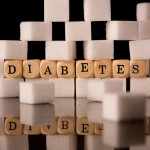Ever feel dizzy or light-headed when you stand up too quickly? You may be one of millions of Americans who suffer from orthostatic hypotension, a condition caused by temporary drops of 20 mmHg or more in systolic blood pressure (the top number) or 10 mmHg or more in diastolic blood pressure (the bottom number). Although these short-lived episodes may seem harmless, according to new findings presented at the American Heart Association’s EPI|LIFESTYLE 2017 Scientific Sessions, they could increase the risk for dementia later in life, ScienceDaily reports.
Dementia is defined by the loss of or decline in memory or other cognitive functions, such as the ability to generate or understand speech, identify or recognize objects and execute motor activities. Currently, an estimated 4 to 5 million Americans have dementia; as the population ages, that number is expected to grow. In recent years, there’s been a lot of research into the underlying causes of dementia, but so far, there is no treatment or cure for this progressive decline in mental ability.
For this latest research, scientists from Johns Hopkins Bloomberg School of Public Health analyzed the medical data of 15,792 individuals between ages 45 and 64 enrolled in the Atherosclerosis Risk in Communities (ARIC) cohort, a study that began in 1987, focusing on the 11,503 people who had no history of coronary heart disease or stroke at visit one of the study.
Researchers measured participants’ blood pressure after they lay down for 20 minutes and took readings when they stood up. During the next two decades, scientists tracked 703 people from this group who experienced orthostatic hypotension at that time. (All were, on average, age 54 upon enrollment in the study.) Findings showed that of these folks, 40 percent of those who suffered from dizziness upon standing at this first visit were more likely to develop dementia than those who didn’t.
“Even though these episodes are fleeting, they may have impacts that are long lasting,” said Andreea Rawlings, PhD, MS, a postdoctoral researcher in the department of epidemiology at the Bloomberg School and a study leader. “Identifying risk factors for cognitive decline and dementia is important for understanding disease progression and being able to identify those most at risk gives us possible strategies for prevention and intervention.”
Researchers theorized that people who experience repeated drops in blood pressure may not be getting the proper amount of blood flow to their brains, which could increase the risk for dementia. But study authors also added that it’s still unclear whether orthostatic hypotension was the direct cause of cognitive decline or just an early indicator of some other underlying illness.
Did you know that older African Americans may be at an increased risk of dementia, Alzheimer’s disease and other forms of mental decline? Click here to learn more.







Comments
Comments